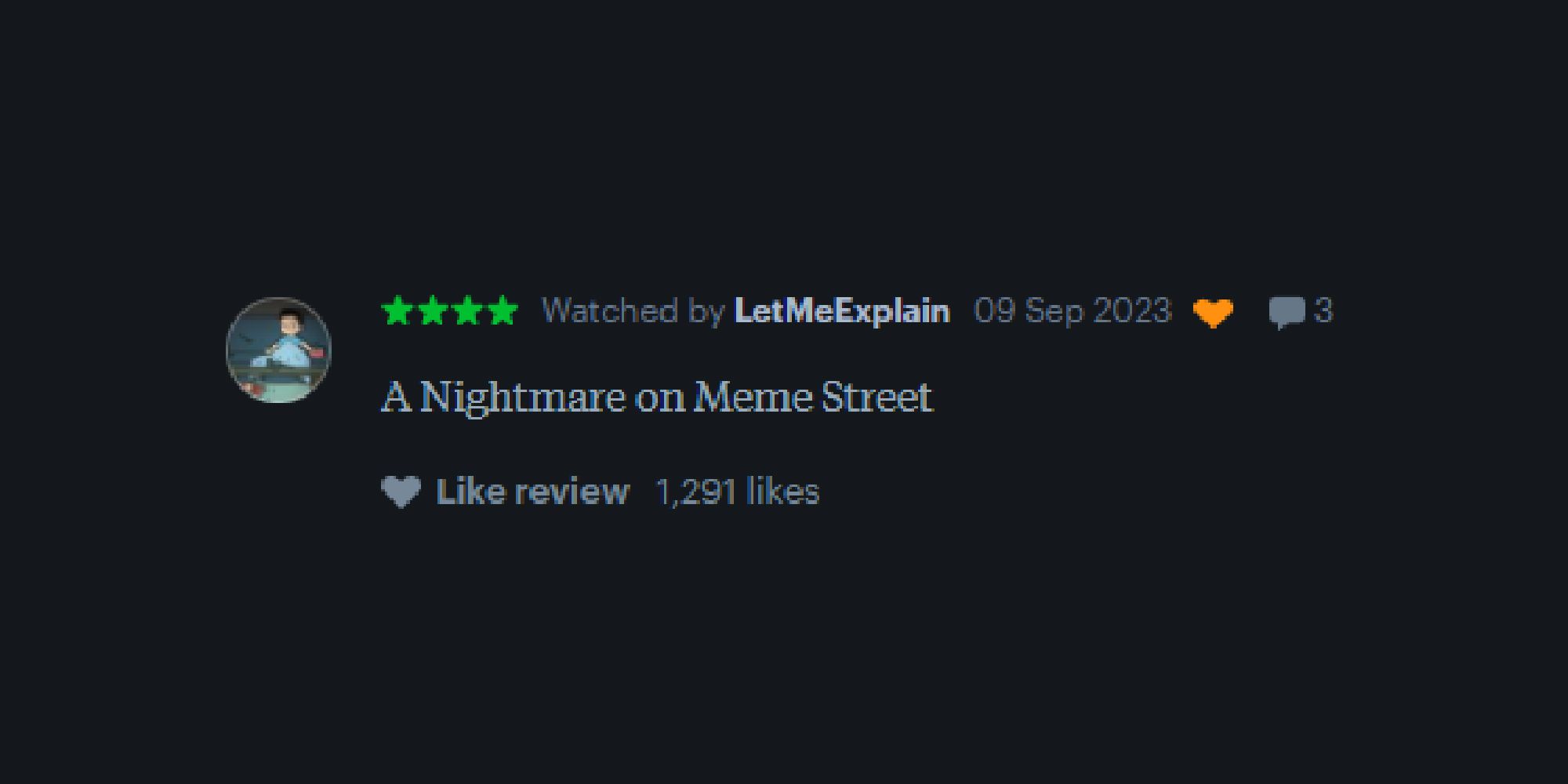
I’ve had Letterboxd since I was in secondary school, using it to propel my vague love of film into a full-blown obsession. What started as the odd movie night with my dad and the occasional trip to the cinema with my mates became a daily routine over the holidays, as I’d pour over lists to try different recommendations.
If you haven’t heard of it, Letterboxd is a social media app where you can track what films you watch, look through directors’ and actor’s portfolios, and write reviews for other users to see. It’s great for expanding your cinematic horizons, but lately, people (read: snobs) have soured on it because of something as superficial as witty one-line comments.
Barbie review - “s(he’s) bro(ken)”.
Each film has a page with an aggregate star rating, a synopsis, what platforms you can watch it on, and where it’s showing in cinemas near you. Scroll down, and you’ll see written reviews too. Some are in-depth, stepping into the mindset of a critic as they unravel their thoughts, explaining why they gave the movie the rating they did like a baby Mark Kermode or Roger Ebert. Others, often the most popular ones propelled to the top, are typically quick-fire jokes.
This is what has the movie-loving side of the internet in such a huff. The complaint is that too many people are now watching films and, in the moment, obsessively thinking about what joke they can make instead of engaging with what’s in front of them. It’s a sweeping assumption, especially when many likely don’t have to think that much about it since the best wit is effortless. Others are complaining that it takes away from passionate, detailed reviews, even though a little scroll further down will take you right to them. The big complaint though, which I’ll preface as unbelievably hyperbolic, is that Letterboxd is ruining film.
It’s a complaint built on gatekeeping, decrying the culture around an app because, shocker, people like funny jokes more than walls of text - ‘You’re not a true movie fan if this is how you engage with them.’ If you like movies, you like movies, there isn’t (and shouldn’t be) a strict guideline on how you enjoy them or express that fact. Letterboxd, like any social media, echoes the loudest voices, so the jokes, of course, come to the top. But the truth of it is that a wide variety of people use the app to express the diverse ways in which they love film. It doesn’t take much work to find that tapestry.
Saltburn review - “Sometimes you just have to bottom your way to the top”.
It’s a unique app. Facebook is about staying in touch with family and friends, Twitter is about… something? Yelling into the void and getting into arguments? Instagram is about sharing photos and artwork. Snapchat is about rapid-fire, visual communication.
Then you have Letterboxd, which is about bringing a community of people with the same hobby together to grow that hobby in new directions. I’m all about horror, but seeing people like our Editor-in-Chief Stacey Henley log a string of ‘40s movies had me interested in dipping my toes back in time, and suddenly I was enamored with classics like Seventh Seal and Los Olvidado. I wouldn’t have done that otherwise, nor would I have watched the “cinematic masterpiece” that is 2020’s Scoob without Tabletop Editor Joe Parlock’s recommendation, but seeing friends explore different parts of the medium was enticing.
Letterboxd is an invitation to film, cutting out the snobbery, elitism, and gatekeeping to simply extend a hand and let you explore your love of movies in your own way. To decry silly comments and jokey reviews, labeling the entire app as a blight on the medium, is to rip away what makes it such a brilliant tool. I wouldn’t love movies half as much as I do now if it wasn’t for the intuitive lists and recommendations that cover a breadth of genres and history, and I’m sure plenty of others have a similar story.
NextMickey Mouse And The Blatant Unoriginality Of Survival Horror
You'd think we'd have more imagination than bad horror games and generic slasher flicks.
Posts












